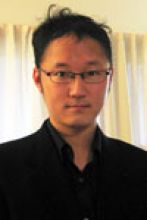Urbanism, Signs, and the Everyday in Contemporary South Korean Cities
Seunghan Paek - CEAS Postdoctoral Associate & Lecturer in East Asian Studies
One of the most prominent, but still understudied, aspects of Korean urbanism is the prolific and often dense array of advertising, most often consisting of billboards and neon-signs of store names and announcements hung on the exterior of commercial buildings. In this talk, Paek will focus on discussing how sign-filled environments in South Korean cities are a crucial part of everyday urban experience, where people can find new ways of being in common and making sense, which cannot be simply reduced to our general rubrics of spectacle, private consumption, or the culture industry. From its first appearance in Korean public space in the early 20th century, commercial signage has prompted vigorous criticism, which sees it as a disruption of ideal and top-down government planning, a primary example of urban degeneration and alienation, and evidence of the complete loss of critical and public space. Instead of entirely disregarding such critical interpretations of commercial signage, Paek looks at the diverse modes of interaction between urban populations and the affective dimensions of commercial signage, thus fostering a reconsideration of the relationship between urbanism and everyday life in South Korea. In doing so, Paek aims to reveal another way of thinking about Korean urbanism in the post-war period, which locates some of the more ethically and politically challenging models of urbanism and community in these commercially saturated environments.
Seunghan Paek received his Ph.D. in Art History from the Ohio State University in 2014. His current research focuses on the phenomenon of commercial signage in Korean urbanism, and the aesthetic, ethical, and political questions it raises. As a Postdoctoral Associate at Yale University, he will be working on developing his dissertation, “Urbanism, Signs, and the Everyday in Contemporary South Korean Cities,” into a book manuscript. He will also continue to research contemporary architecture and urbanism in Asia, with a project tentatively entitled, “The New Public Space: Spectacle, Media, and Urban Identity in Asia.” In the Fall of 2014, he will teach an undergraduate seminar titled “South Korean Urbanism.”
Please RSVP to eastasian.studies@yale.edu by 10/28
Light lunch will be provided.

